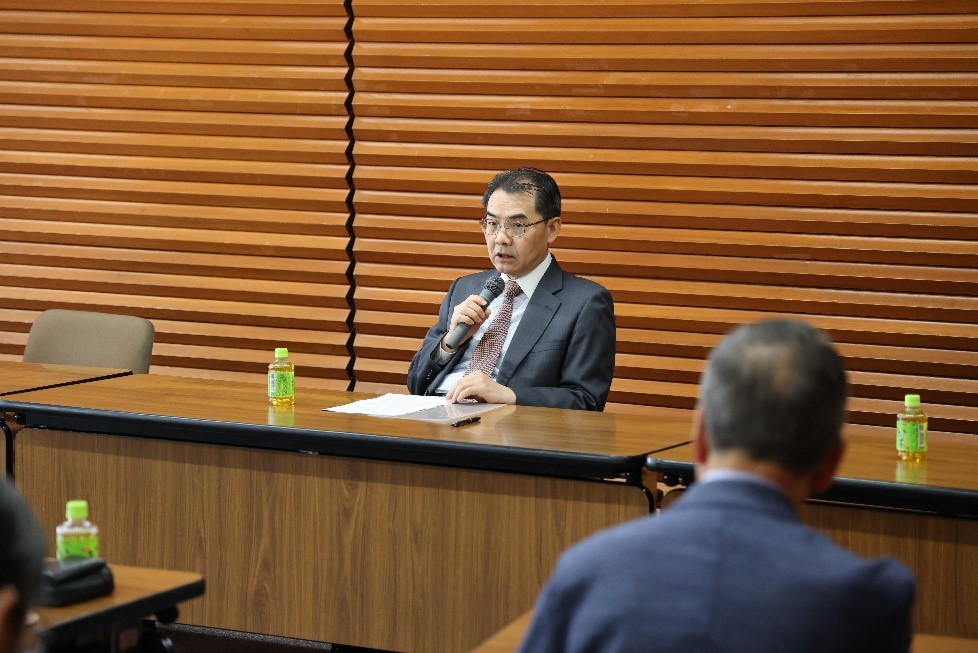Joint construction of initiative spells true multilateralism, says China envoy

People from all walks of life in Japan can objectively view the Belt and Road Initiative and seize more cooperation opportunities, as joint BRI construction provides a pathway for building a community with a shared future for mankind, says Chinese Ambassador to Japan Wu Jianghao.
Any country committed to shared development can take part in the BRI as an equal partner and gain from it, regardless of their political system, history, culture or stage of development, Wu said.
Since Chinese President Xi Jinping proposed the initiative in 2013, the joint construction of the BRI has completed its first decade and entered a stage of high-quality development.
Over the past 10 years, the BRI has achieved fruitful results, becoming the widest-ranging and largest-scale international cooperation platform in the world, Wu told a forum organized by the Japan-China Belt and Road Initiative Promotion Association in Tokyo last week.
“The joint construction of the BRI practices true multilateralism, does not exclude or target any party, does not engage in geopolitical games, does not form closed and exclusive ‘small circles’, does not impose values and development models, and certainly does not form military alliances,” said Wu.
“It is because of this that the joint construction of the BRI can maximize consensus, overcome obstacles, and become increasingly accepted by the international community,” he added.
The initiative has been welcomed by a large number of developing countries because it focuses on addressing their prominent shortcomings such as infrastructure, funds, technology and talent, bringing about tremendous changes, he said.
For example, the China Railway Tunnel Group constructed the 19.2-kilometer-long Qamchiq Tunnel in Uzbekistan, reducing travel time for trains to just 15 minutes. Previously, people from eastern Uzbekistan traveling to the capital city, Tashkent, had only one mountainous road, which became impassable in winter, forcing detours through neighboring countries.
Last year, the Chinese embassy in Japan held an international symposium marking the 10th anniversary of the BRI, inviting diplomats from many countries in Japan to attend. Participants praised the BRI and called for Japan to actively participate in the initiative.
Wu said some Western countries persist in propagating the so-called “debt trap” theory to shift the debt problems of some developing countries to China, which is pure misinformation.
According to the World Bank, two-thirds of the creditors of debts to be repaid by low- and middle-income countries in the next seven years are Western commercial institutions and multilateral financial institutions. In contrast, the Chinese government and commercial institutions account for only 14 percent of such debts.
Many Japanese firms are using the China-Europe freight trains and river-sea combined transport to expand business opportunities. Chinese and Japanese companies and financial institutions have accumulated successful cases of cooperation in third-party markets, involving infrastructure, green finance, equipment manufacturing, transportation, logistics, new energy, and many other fields.
“The facts prove that the Belt and Road Initiative is an opportunity for Japan, not a threat,” Wu said.
China is willing to work with all countries to achieve high-quality development of the BRI on a larger scope, in broader fields, and at a deeper level. Japan, as a neighbor and important partner of China, is welcome to participate in the joint construction of the BRI, he added.
“We hope that Japan would abandon double standards and prejudices, stop vilifying and smearing the BRI, and release more objective and truthful information to the outside world.”
More than 30 people from all walks of life attended the forum. Kazuyuki Hamada, president of the Japan-China Belt and Road Initiative Promotion Association, and its representative Yoshikazu Ono said the association will vigorously promote a better understanding of the BRI among various sectors of Japanese society.


